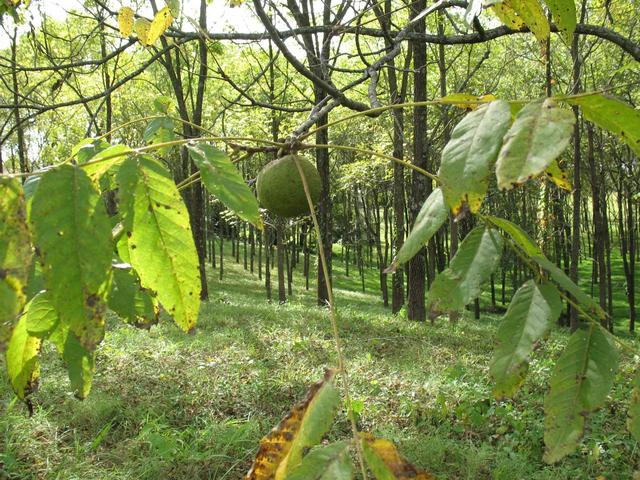| ||||||||||
Dr. Ronald P. Rogers CHIROPRACTOR Support for your body's natural healing capabilities 270-384-5554 Click here for details 


Columbia Gas Dept. GAS LEAK or GAS SMELL Contact Numbers 24 hrs/ 365 days 270-384-2006 or 9-1-1 Call before you dig Visit ColumbiaMagazine's Directory of Churches Addresses, times, phone numbers and more for churches in Adair County Find Great Stuff in ColumbiaMagazine's Classified Ads Antiques, Help Wanted, Autos, Real Estate, Legal Notices, More... 

|
Kentucky Color: Black Walnut Grove Jimmy Reliford has created a real, live, Walnut Grove between Mayne Layne and Stults Street, inside the City Limits of Columbia, KY Next earlier Kentucky Color: Hills are alivewith Red-Spotted Purple Butterflies. By Billy Joe Fudge Retired Kentucky State District Forester This is real, live, manmade, Walnut Grove inside the city limits of Columbia. It is between Stults Street and Mayne Lane behind Colonial Apartments. This grove is about 3 acres of an over 40 acre plantation owned by Jimmy Reliford. The other two plantation areas are located on Harvey's Ridge on the North side of Hwy 768 about two and a half miles East of Hwy 61 and on the East side of South 61 behind Jimmy's, Reliford Drilling offices at Sparksville. These trees were planted as one year old seedling in the 80's by Jimmy as an investment that he hopes will have a big payoff at sometime in the future for his children and grandchildren. Black Walnut is traditionally and during most times the most valuable tree in the Eastern United States. It is not unusual to find that Black Walnut will bring 4 to 8 dollars per board foot. A board foot is an area of wood measuring 1 foot wide by 1 foot long and 1 inch in thickness. I have seen single trees sell for over 2,000 dollars before they were even harvested. Black Walnut wood is used for furniture, flooring, gunstocks and more. The heart wood is naturally very dark and very desirable. Black Walnut kernels have a very strong taste and are the best in candies, cakes, cookies, and ice cream. However they are very difficult to extract for the shell is very hard and the stain from the shell and hull that ends up on your skin will not clean off. It will only grow off as your skin replaces itself over time. The shell is very valuable and makes many specialty products and services possible. It is used as a sandblasting agent to remove paint from metal, clean the hulls of ships for refitting and painting, remove burrs from metal left over in the manufacturing process and is even used to clean jet engines. By the way Black Walnut puts a substance into the soil that inhibits the growth of some tree species such as White Pine and apple. It also inhibits the growth of fescue and tomatoes. So if you've been having problems with your lawn grass and your tomatoes next to a walnut tree then you now know why. -Billy Joe Fudge This story was posted on 2010-09-11 02:55:44
Printable: this page is now automatically formatted for printing.
Have comments or corrections for this story? Use our contact form and let us know.
More articles from topic Kentucky Color by Billy Joe Fudge:
Kentucky Color: Hills are alive with Red-Spotted Purple Butterflies Kentucky Color: Inquiring Minds Kentucky Color: Giants Among Us. Fairgrounds Oaks Kentucky Color: Four-eyed Jumping Spider Kentucky Color - Jar Fly Monster Molt Kentucky Color: Stink Bug Kentucky Color: Red Tailed Hawks Kentucky Color: Zebra Swallowtail and Butterfly Weed Kentucky Color - Kousa Dogwood weekend Kentucky Color - Groundhog Day View even more articles in topic Kentucky Color by Billy Joe Fudge |


|
||||||||
|
| ||||||||||
|
Quick Links to Popular Features
Looking for a story or picture? Try our Photo Archive or our Stories Archive for all the information that's appeared on ColumbiaMagazine.com. | ||||||||||
|
Contact us: Columbia Magazine and columbiamagazine.com are published by Linda Waggener and Pen Waggener, PO Box 906, Columbia, KY 42728. Please use our contact page, or send questions about technical issues with this site to webmaster@columbiamagazine.com. All logos and trademarks used on this site are property of their respective owners. All comments remain the property and responsibility of their posters, all articles and photos remain the property of their creators, and all the rest is copyright 1995-Present by Columbia Magazine. Privacy policy: use of this site requires no sharing of information. Voluntarily shared information may be published and made available to the public on this site and/or stored electronically. Anonymous submissions will be subject to additional verification. Cookies are not required to use our site. However, if you have cookies enabled in your web browser, some of our advertisers may use cookies for interest-based advertising across multiple domains. For more information about third-party advertising, visit the NAI web privacy site.
| ||||||||||





















































